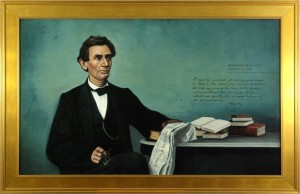Marquette Law School Poll: The First Results Are Out
The first results from the Marquette Law School Poll, the largest political polling project in Wisconsin history, were released Wednesday morning, providing a fresh and provocative view of public opinion across the state.
The full poll results can be found here.
At noon today (Jan. 25), Charles Franklin, visiting professor of law and public policy and director of the poll, will discuss the poll results with Mike Gousha, distinguished fellow in law and public policy, in Eckstein Hall. The session is free and open to the public. Video of the session will be posted on the Web page for the poll shortly after the session ends.
A brief look at the results: With the spotlight on the almost-certain recall election for governor, more people said at this point that they would vote for Gov. Scott Walker, the Republican who has been in office for a year, than for any of four possible Democratic challengers. The margins in favor of Walker ranged from five to ten percentage points.
Asked if they approved or disapproved of the way Walker is handling his job as governor, 51% said they approved and 46% said they disapproved.
The poll results also included information on how Wisconsinites rate candidates for the U.S. Senate seat that is open this year, what they think of some of the proposals that have stirred controversy in the state in the last year, and the standing of President Barack Obama and some of the Republican candidates for president.
The Law School polling project will continue throughout 2012, with fresh rounds of polling generally monthly. All poll results, along with analysis of what the poll shows, links to media coverage of the poll, and announcement of upcoming events, will be posted on the Web page for the poll.

